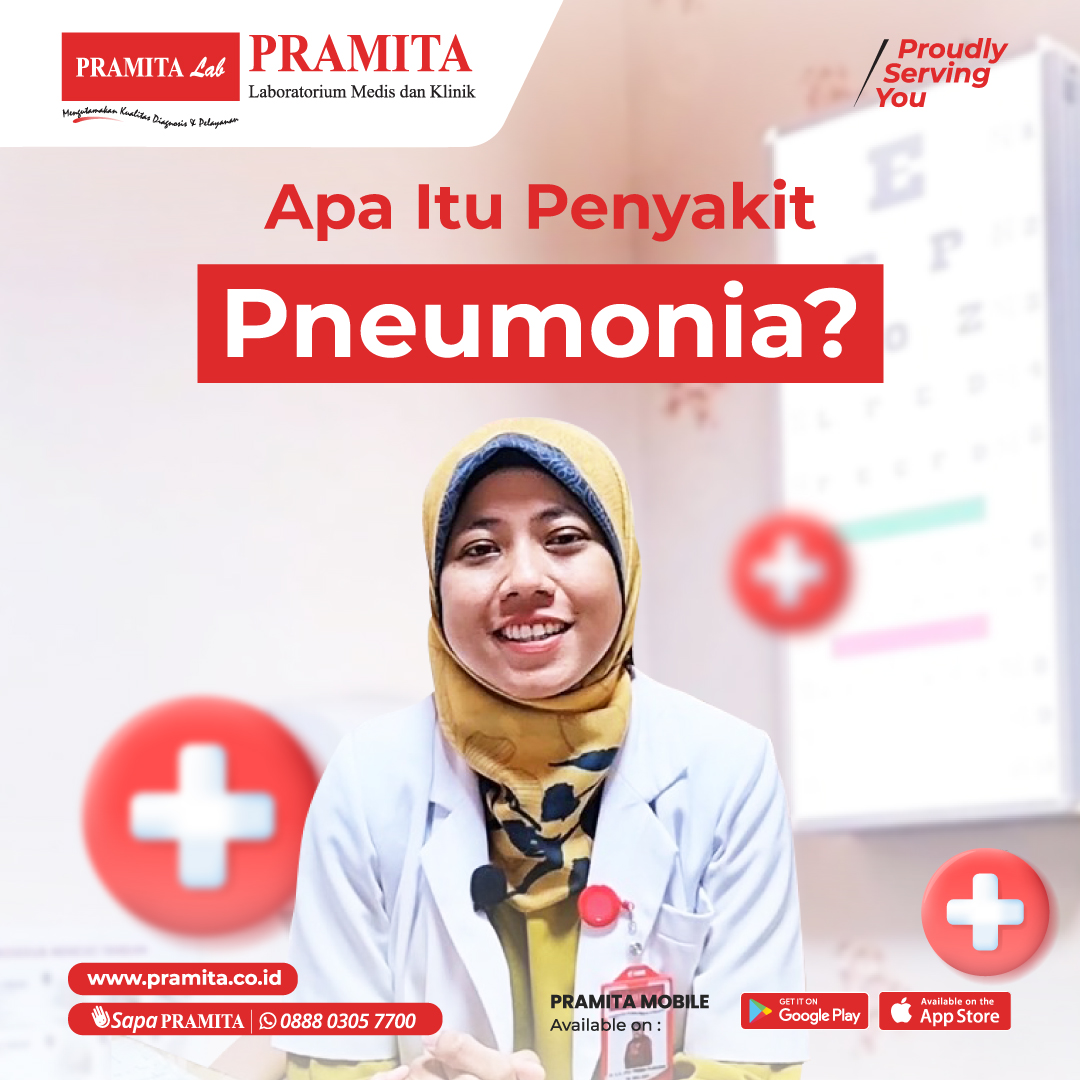Healthy Inspirations

What Is Pneumonia?
Wed, 11 Sep 2024Pneumonia is an inflammatory condition that occurs when a person has an infection in the air sacs within the lungs. These infected air sacs fill with fluid or pus (purulent sputum). This condition can cause a phlegm-filled or pus-filled cough, fever, chills, and difficulty breathing. Pneumonia infections can affect either one side of the lungs or both.
In Indonesia, pneumonia is more commonly known as "wet lung." This disease not only affects adults but can also occur in children, even newborn babies. Pneumonia is a contagious disease, meaning that someone with the infection can spread it to others through inhaling airborne droplets from sneezing or coughing.
Pneumonia can be caused by bacterial, viral, and fungal infections. Some common viruses that cause pneumonia include influenza, respiratory syncytial virus (RSV), and SARS-CoV-2. Meanwhile, the bacteria most commonly responsible for pneumonia is Streptococcus pneumoniae.
The symptoms of pneumonia vary widely. However, pneumonia is generally characterized by a phlegm-filled cough, fever, chills, shortness of breath, chest pain when breathing or coughing, nausea and vomiting, loss of appetite, and fatigue.
Anyone can develop pneumonia, but certain groups are at higher risk of contracting it:
- Babies and children under 2 years old.
- The elderly aged 65 years and older.
- Smokers.
- People with weakened immune systems, such as those with HIV or undergoing chemotherapy.
- Individuals with chronic diseases such as asthma and chronic obstructive pulmonary disease (COPD).
- Hospital patients, especially those using breathing machines or ventilators.
Treatment for pneumonia is tailored to the cause and severity of the patient's condition. Pneumonia caused by bacterial infections is treated with antibiotics. Doctors may also provide other medications to relieve symptoms such as cough, fever, or pain.
Pneumonia can be prevented in several ways, including vaccination, maintaining personal hygiene such as regularly washing hands and avoiding touching the nose or mouth with unwashed hands, and avoiding contact with sick individuals.
Author: Dr. Trisna Purirani (Medical Service Doctor at Pramita Medical Laboratory Cik Ditiro Yogyakarta)

